Asian Shares Flat; Yuan-Related Turmoil Fades
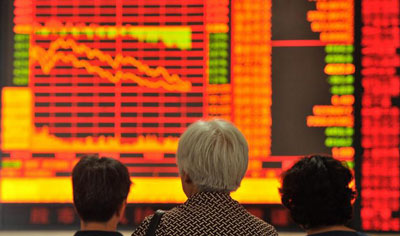
China property data continues to be rare bright spot
Asian markets were roughly flat Tuesday as turmoil from a weaker yuan dissipated and China’s property market showed signs of recovery.
In China, housing continues to be a rare bright spot after a stock-market rout and period of currency volatility. On Tuesday, the average price of new homes in 70 Chinese cities rose for a third-straight month in July, up 0.15%, on a monthly basis. That compares with a rise of 0.16% in June.
While some analysts have said a rocky stock market, down nearly a quarter from its June peak, would encourage investors to put their money back into real estate, they caution that a prolonged rout could end up hurting the economy. The gauge continues to show that first- and second-tier cities are outpacing smaller ones—with a 23.6% rebound in July from a year earlier in Shenzhen—though positive momentum is starting to spill into other cities.
The solid reading, meanwhile, could be a drag on stocks, with diminished hopes for stimulus.
“The figures roughly indicate a continuation of the existing trend but they do not appear to be poor enough to require some policy intervention,” said Gerry Alfonso, director of trading at Shenwan Hongyuan Securities in Shanghai.
The Shanghai Composite Index is down 1% at 3951.19 and the smaller Shenzhen Composite is about flat.
In Hong Kong, shares are up 0.2% at 23851.86.
Meanwhile, the bout of instability sparked when China devalued its currency by nearly 2% last week has started to fade, with the yuan stabilizing for a third-straight day. On Tuesday, China’s central bank set the yuan’s trading midpoint nearly flat with the level a day earlier, at 6.3966 per U.S. dollar. The currency can trade within a 2% band above or below that. The yuan is currently trading at 6.4044.
Elsewhere, South Korea’s Kospi was down 0.5% and Japan’s Nikkei Stock Average fell 0.2%. Taiwan’s Taiex is down 0.3%.
In Australia, a fresh low for oil prices kept a cap on gains in shares. The S&P ASX 200 is flat as investors await a number of earnings reports.
Minutes from the Reserve Bank of Australia show that the central bank sees a silver lining in the decline of its currency, which was recently hurt by China’s yuan devaluation. A cheaper currency could help make Australia’s commodity exports more competitive.
The Australian dollar was roughly flat at $0.7376 against the U.S. dollar. South Korean won, also bruised by the yuan devaluation, was also roughly in line with its previous close, at 1183.79 against the U.S. dollar.
Brent crude oil was down 0.3% at $48.62 in Asia trade, putting it down 6.2% so far this month.
U.S. oil prices fell to a fresh six-year low overnight, on concerns that the crude-oil glut is set to grow. It is down 11% this month as concerns mount that persistently high crude-oil production from the U.S. and the Organization of the Petroleum Exporting Countries would keep the global market oversupplied through 2015.
Source: WSJ – Asian Shares Flat; Yuan-Related Turmoil Fades
Related Posts
 Asian shares plunge to two-year lows as China stocks continue to fall
Asian shares plunge to two-year lows as China stocks continue to fall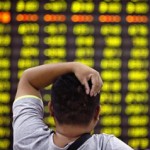 China stocks fall more than 1 percent in early trade
China stocks fall more than 1 percent in early trade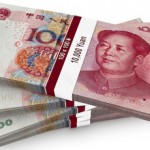 China Stock Selloff Abates on State Efforts to Stabilize Yuan
China Stock Selloff Abates on State Efforts to Stabilize Yuan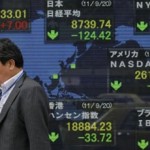 Asian shares hit two-month high after solid U.S. job growth
Asian shares hit two-month high after solid U.S. job growth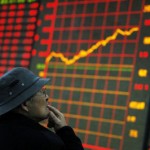 China stocks slump again in absence of government support; Hong Kong rebounds
China stocks slump again in absence of government support; Hong Kong rebounds
























